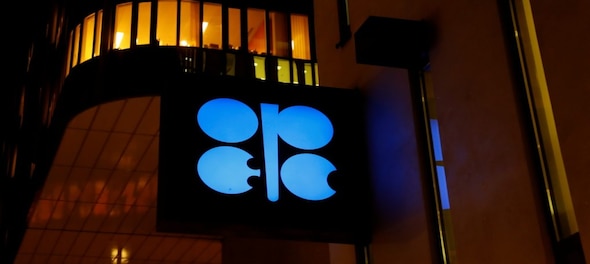
Crude oil prices fell to about $72 per barrel on July 19 after the Organization of Petroleum Exporting Countries and its allies (OPEC+), led by Russia, agreed to gradually withdraw COVID-related production cuts by September 2022.
The OPEC+ had announced a 10 million (one crore) barrel per day production cut in April 2020. Now it has decided to increase its overall production by 4,00,000 barrels per day every month till the remaining portion of the group’s April 2020 production cut is completely phased out.
This also ends the stand-off between the United Arab Emirates (UAE) and other OPEC+ countries on linking an extension of the supply agreement to increases in production.
The Agreement
In April 2020, the OPEC+ countries had entered into a two-year agreement to make steep cuts in crude oil production to deal with a sharp fall in prices due to the COVID-19 pandemic. The price of Brent crude had hit an 18-year low of under $20 per barrel in April 2020 as economic activities around the world came to a near standstill amid lockdowns.
However, crude oil prices have since recovered to well above pre-COVID-19 levels, following which India and other developing countries have been calling for a withdrawal of production cuts. The current price of Brent crude is 39 percent higher than what it was at the beginning of this year. It rose to over $77 per barrel earlier this month over a potential deadlock in the OPEC+ negotiations.
The UAE-OPEC+ Stand-off
Initially, the OPEC+ countries had tied the gradual increase in production to a six-month extension of the production agreement, which will expire in April 2022. But the UAE did not agree to the proposal, stating that their crude oil supply capacity did not match the reference production levels used to calculate supply quotas for the OPEC+ countries. It suggested a revision in reference production levels before tying the increase in supply to the proposed extension.
The final decision by the OPEC+ countries, however, includes an extension of the production agreement to September 2022. It also provides for an increase in reference production levels for Saudi Arabia, Russia, UAE, Kuwait and Iraq.
How Will India Respond?
The announcement of an increase in production levels has stopped the relentless rise of crude oil prices.
But India has seen a 21.7 percent increase in fuel prices since the beginning of the year with petrol and diesel prices hitting all-time highs. In several cities, petrol has even crossed the Rs 100/litre mark.
On July 19, the government informed the Lok Sabha on the first day of the Parliament’s Monsoon Session that the price of petrol increased 63 times, while diesel spiked 61 times between January 1 and July 9.
In the national capital, the current price of petrol is Rs 101.8 per litre and that of diesel is Rs 89.87 per litre. The prices remained unchanged on July 20.
It is to be seen how the Indian government takes advantage of the fall in crude oil prices.
(Edited by : Shoma Bhattacharjee)
Check out our in-depth Market Coverage, Business News & get real-time Stock Market Updates on CNBC-TV18. Also, Watch our channels CNBC-TV18, CNBC Awaaz and CNBC Bajar Live on-the-go!


Kannauj Lok Sabha elections: Can ex-UP CM Akhilesh Yadav reclaim this erstwhile SP bastion?
May 12, 2024 11:32 PM
Khunti Lok Sabha Elections 2024: Arjun Munda and Kali Charan to lock horns in this clash of tribal leaders
May 12, 2024 8:59 PM
Malkajgiri Lok Sabha election: A three-way contest among turncoats
May 12, 2024 8:45 PM

